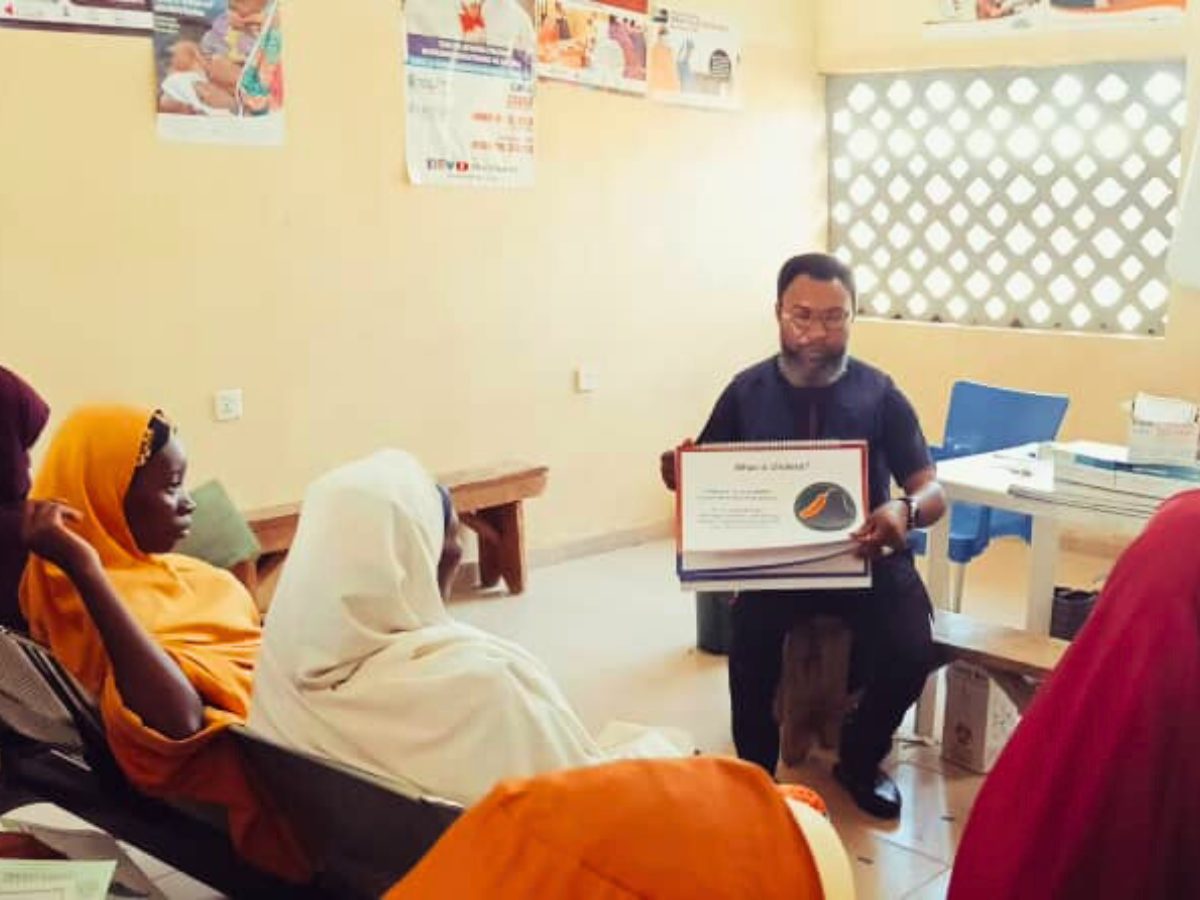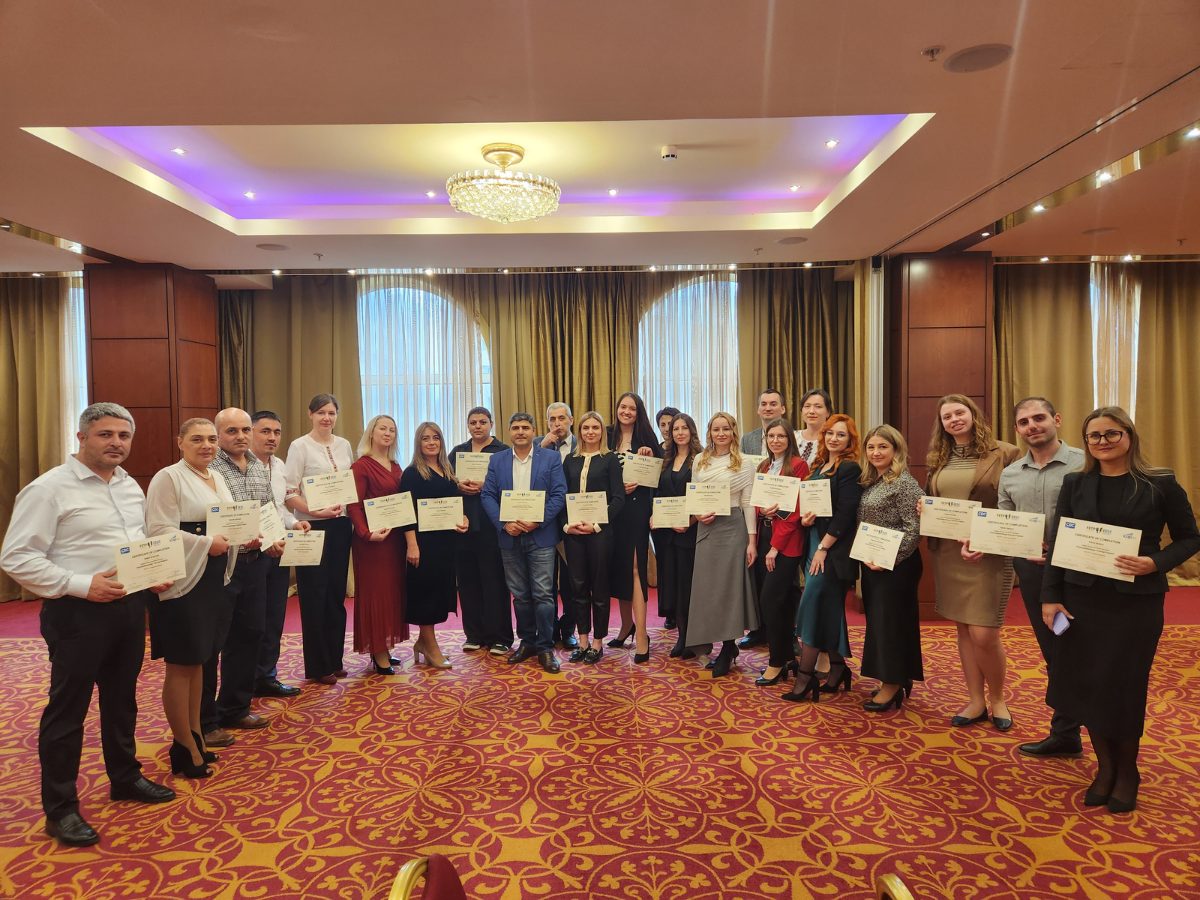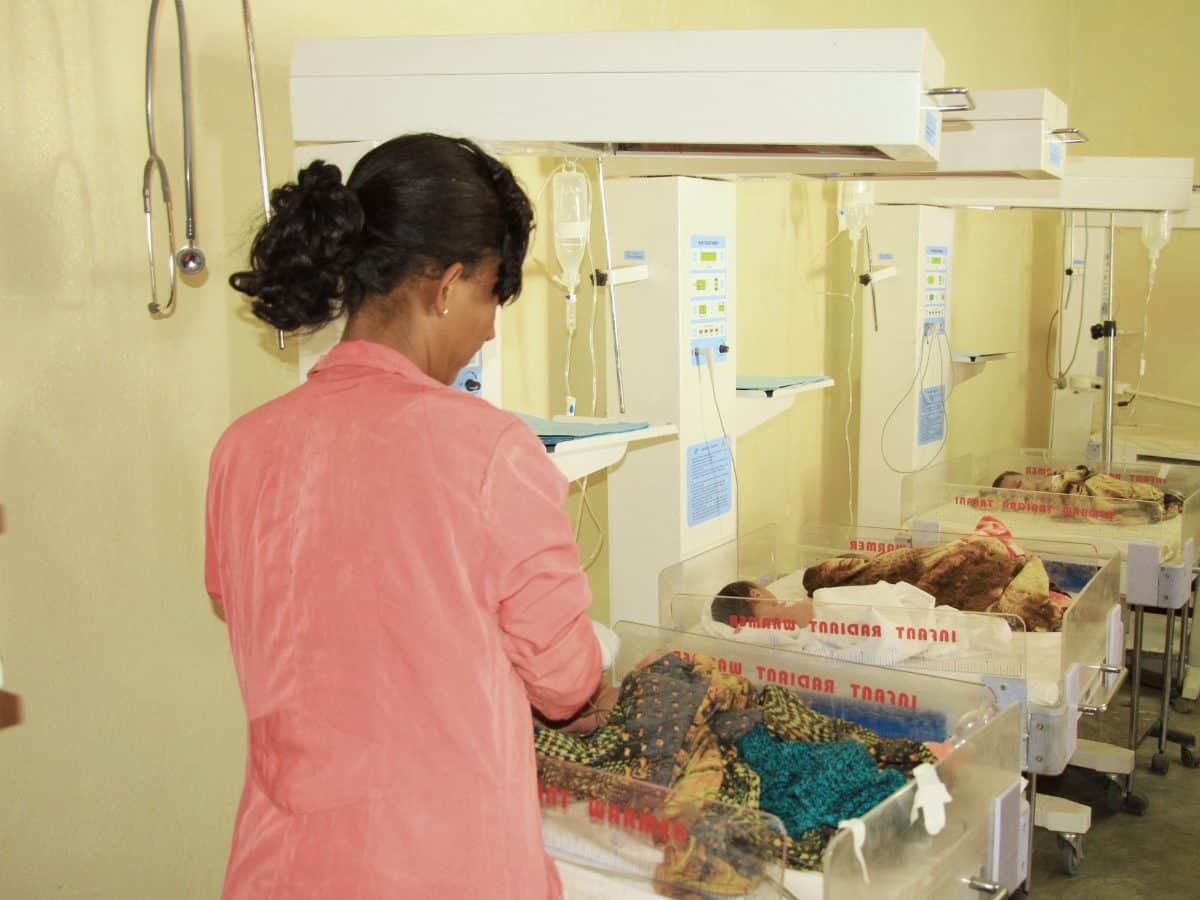“Engaging students in ICAP projects is a win-win,” said Claire Raether, M.Ed, training and education specialist for Human Resources for Health Development at ICAP. “Not only do students get the opportunity to learn how their skills gained at Columbia can be applied to address some of the world’s most pressing health issues, but the work they do for ICAP projects often elicits new scientific findings, helping to paint the bigger picture of global health overall.”
Over the summer and fall of 2022, ICAP supported 14 students in the Next Generation internship program. As interns, students engage in the design, implementation, and evaluation of ICAP-supported programs while working side-by-side with global health experts. Interns spend three to six months involved in ICAP projects in Africa, Central America, and New York, learning about health care delivery systems in low-resource settings.
On January 24, 2023, these 14 students presented the findings of their practicums to the wider Columbia community, highlighting not only what they learned during their internships, but how they plan to use what they learned in the future.
Take, for example, Next Generation intern Sushma Chapagain.
A graduate candidate in the Population and Family Health department at Columbia – with a certificate in Social Determinants of Health – Chapagain worked with ICAP in Central America for her practicum, specifically looking at HIV recency testing in Honduras through the Tracking with Recency Assays to Control the Epidemic (TRACE) project. With funding from the U.S. President’s Emergency Plan for AIDS Relief (PEPFAR) through the Centers for Disease Control and Prevention (CDC), ICAP collaborates with ministries of health on the TRACE project to roll out rapid HIV recent infection testing. Sushma helped administer Training of Trainers (ToT) for pre- and post-surveys used in TRACE, established connections with local personnel at the National HIV Laboratory, and assisted in reviewing training materials.
“I learned about ToT in my public health programming class and this internship gave me the hands-on experience to apply my classroom knowledge in the field,” said Chapagain. “The TRACE project has been implemented in a few other ICAP countries, but it is the first time it was implemented in Central America. I witnessed how program managers were flexible to deal with changing circumstances. They were skilled at learning along the way and adapting to changing conditions. This inspired me to hone my Spanish skills and reinforced the importance of cross-cultural communication skills, which is important for working in global health.”
In ICAP’s student blog Voices of Tomorrow, Next Generation intern Meredith Cohen recently reflected on what she gained working on the Population-based HIV Impact Assessment (PHIA) project in Zimbabwe, which is also supported by PEPFAR through CDC. Analyzing surveys that assessed HIV incidence, prevalence, viral load suppression, and other factors, Cohen explored the intersection between migration, climate change, and HIV. The practicum, she said, underscored how complex the research process is from start to finish.
“This opportunity involved identifying gaps in the current literature surrounding HIV and migrant health, crafting a rationale for my research question, and conceptualizing and conducting the data analysis,” she said. “For me, this process illustrated the level of detail required to produce novel research, particularly in the context of emerging public health threats as we consider the impacts of climate change.”
Another Next Generation intern, Kimberly Geoffrey, conducted her practicum on ICAP’s SILVER project –supported by New York Community Trust – which provided insight into the challenges presented by COVID-19 on older adults living at home in New York City.
“The study highlighted the important role of interdisciplinary collaboration in addressing complex global health challenges and the need for diverse perspectives and expertise to develop effective and sustainable interventions,” said Geoffrey. “The SILVER study involved collaboration between experts in various fields, such as epidemiological expertise, social and behavioral sciences, data analysis and management, and other public health skills. “
The Next Generation interns encountered an array of research topics related to ICAP projects in 2022, from differentiated service delivery among men who have sex with men in Kenya to early infant diagnosis in Mozambique to integrated family planning in Zambia, and beyond. Findings from student practicums provide valuable information about program gaps that help ICAP projects continue to better target health strategies and innovations around the world.

Esther Kim, Next Generation intern
“It’s important that we continue to engage students in our global projects,” added Raether. “While they get the chance to work with subject experts, they also bring with them fresh perspective and the latest academic training, which is incredibly important as we embark upon ever-evolving global health challenges.”
About ICAP
A major global health organization that has been improving public health in countries around the world for two decades, ICAP works to transform the health of populations through innovation, science, and global collaboration. Based at Columbia Mailman School of Public Health, ICAP has projects in more than 40 countries, working side-by-side with ministries of health and local governmental, non-governmental, academic, and community partners to confront some of the world’s greatest health challenges. Through evidence-informed programs, meaningful research, tailored technical assistance, effective training and education programs, and rigorous surveillance to measure and evaluate the impact of public health interventions, ICAP aims to realize a global vision of healthy people, empowered communities, and thriving societies. Online at icap.columbia.edu








